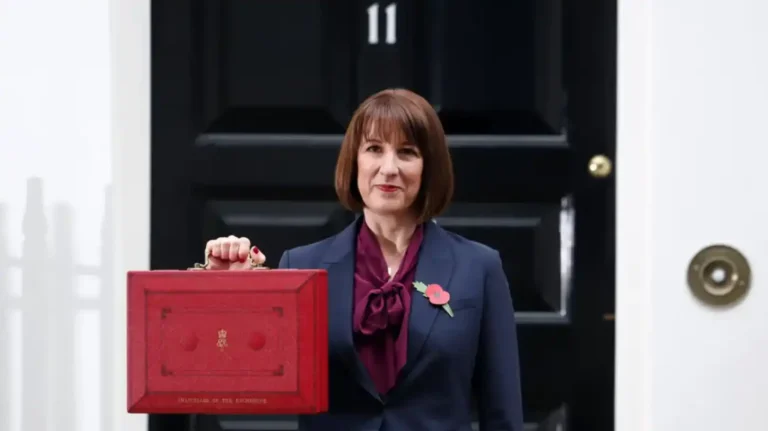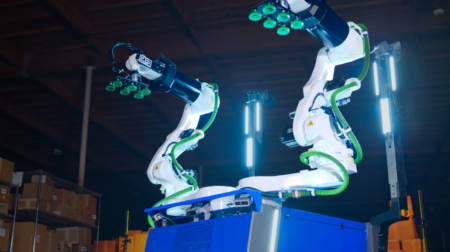In the UK’s Autumn Budget 2024, Chancellor of the Exchequer Rachel Reeves laid out the Labour government’s vision for economic growth and industry support, pledging to “invest, invest, invest” in key sectors while implementing significant tax changes and enhanced worker protections.
“This is the only way to drive economic growth,” Reeves told the Commons, highlighting her role as the UK’s first female chancellor.
Among the budget’s most notable elements was the increase in the National Living Wage from £11.44 to £12.21 per hour, a freeze on personal tax increases for working people, and a 1.2% rise in employers’ National Insurance contributions.
Employers’ contributions will now apply to earnings above a lowered threshold of £5,000, with the Employment Allowance also increased from £5,000 to £10,500 to provide tax relief for 865,000 employers.
Reeves also announced a significant increase in the capital gains tax (CGT) rate on carried interest, which will rise to 32% from April 2025.
While Reeves emphasised the need for “fiscal responsibility”, several industry leaders voiced concerns about potential impacts on competitiveness.
Andrei Danescu, CEO of robotics company Dexory, warned that increased National Insurance payments “create barriers for deep tech businesses that prioritise reinvestment in innovation, growth, and talent development”.
Danescu called for policies that “reward technological advancement”, adding that supporting robotics and AI would be essential to secure the UK’s competitive position globally.
The budget underscored a £4.5bn multi-year investment in strategic sectors, with close to £1bn for aerospace, more than £2bn for the automotive sector, and £520m for the Life Sciences Innovative Manufacturing Fund.
As part of Labour’s Industrial Strategy, these measures target the UK’s high-growth sectors: advanced manufacturing, clean energy, life sciences and digital technology.
Mark Cracknell, programme director at Zenzic, commended this direction: “This budget sends a signal that the UK is committed to remaining at the forefront of innovation”.
However, cybersecurity leaders flagged gaps in dedicated funding for their field. Spencer Starkey, EVP at SonicWall, expressed disappointment, stating, “This short-sighted approach leaves both public and private sectors exposed to evolving cyber threats,” warning of potential risks to national infrastructure without adequate cybersecurity measures.
In the manufacturing and automation sectors, the Budget provided strong support through the Made Smarter programme.
Funding for the Made Smarter Adoption programme will double to £16m, expanding across all of England and helping SMEs adopt digital and automation technologies.
“Improving digital adoption in public services and SMEs is a particularly important step for the growth of the UK,” commented Julian David, CEO of TechUK, though he urged the government to “act fast” on its AI and Industrial Strategy plans.
To further incentivise capital investment in manufacturing, the government announced a permanent full expensing policy, allowing businesses to deduct the entire cost of investments in machinery and equipment from taxable profits.
Stephen Phipson, chief executive of Make UK, described it as a “game-changer”, noting that “for every £1 a business invests in machinery, they can claim back 25p in corporation tax”, a powerful incentive to drive automation and productivity improvements across British industry.
The Institute for the Motor Industry echoed this support, voicing satisfaction with the £2bn commitment to the automotive sector to foster the growth of electric vehicles and associated green technologies.
However, Andrew Insley, CFO of Advania UK, offered a tempered view, cautioning that the increased CGT rates “could stifle entrepreneurial activity”, impacting the competitive landscape in the long term.
While its fiscal prudence and tax adjustments have drawn mixed responses, the strategy for long-term industrial growth and support for robotics, automation, and manufacturing indicate a commitment to transforming the UK’s industrial landscape.
Phipson concluded: “These measures put advanced manufacturing at the heart of the UK’s economic future,” positioning the country as a leader in high-tech, sustainable industries.
Innovations and achievements in robotics, automation, manufacturing, engineering, and more will be highlighted and celebrated at the second annual Robotics & Automation Awards on 06 November 2024 at De Vere Grand Connaught Rooms in London. Visit www.roboticsandautomationawards.co.uk to learn more about this unmissable industry event – and to book your table!








